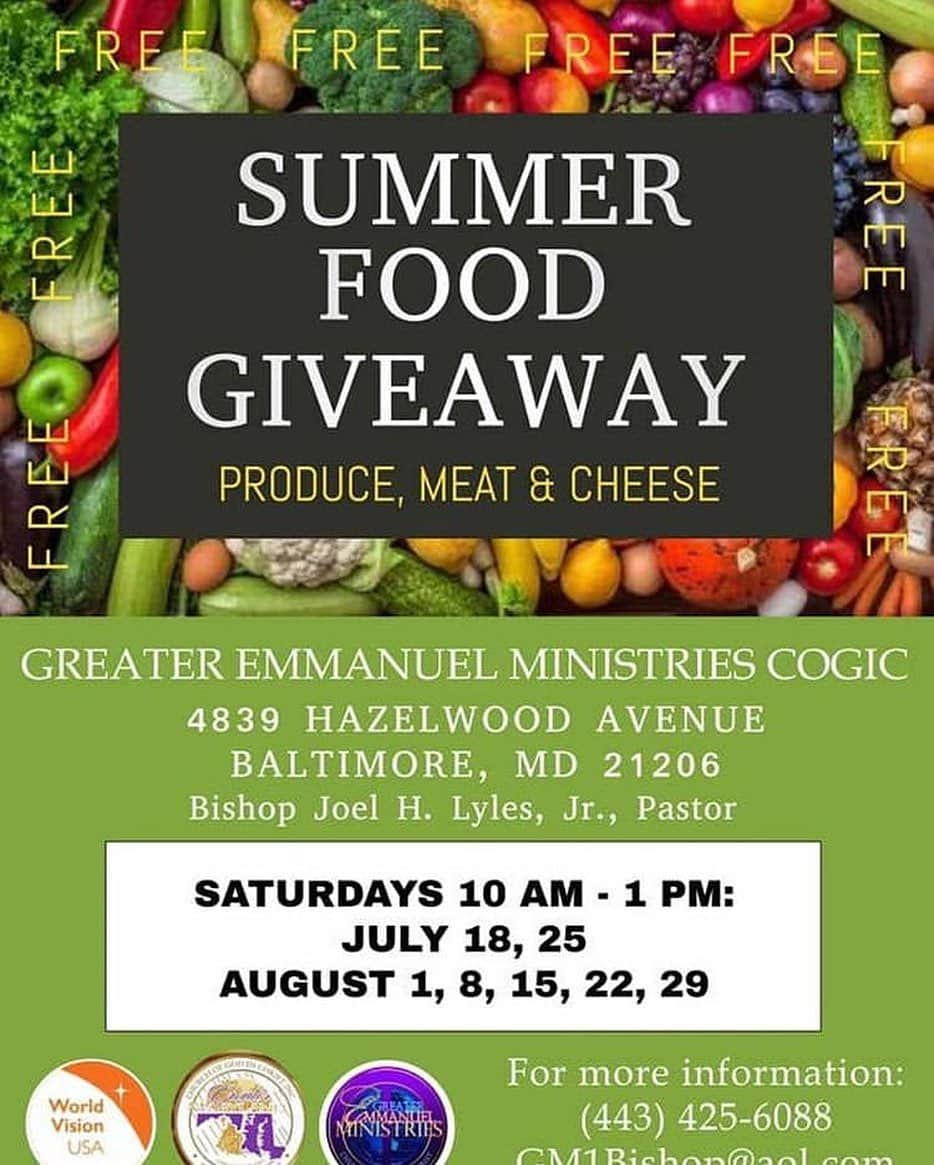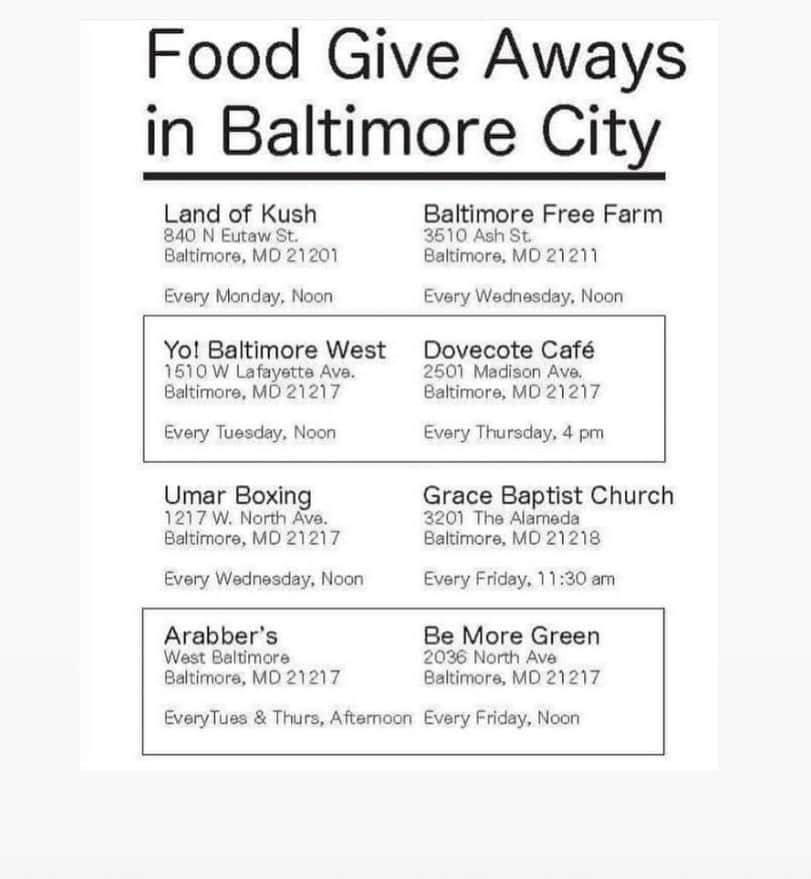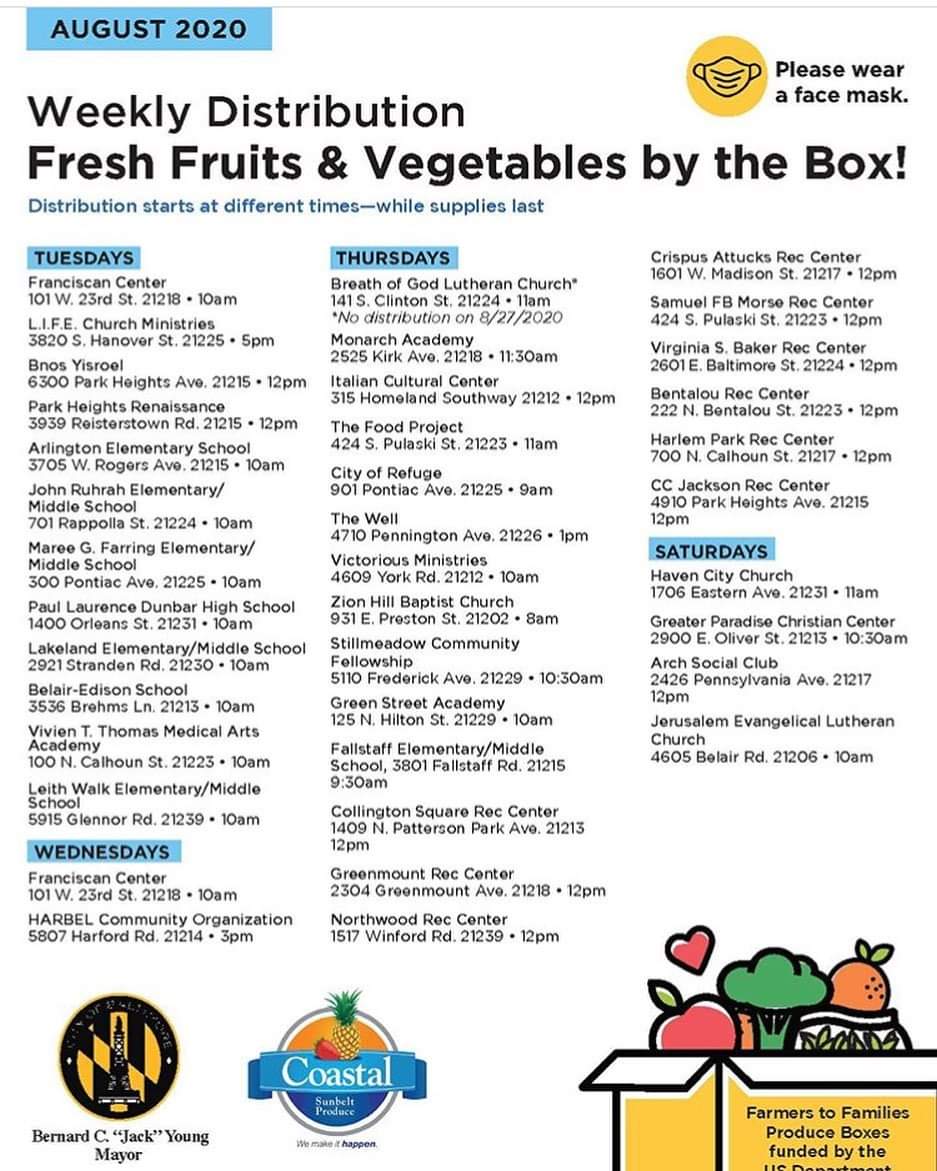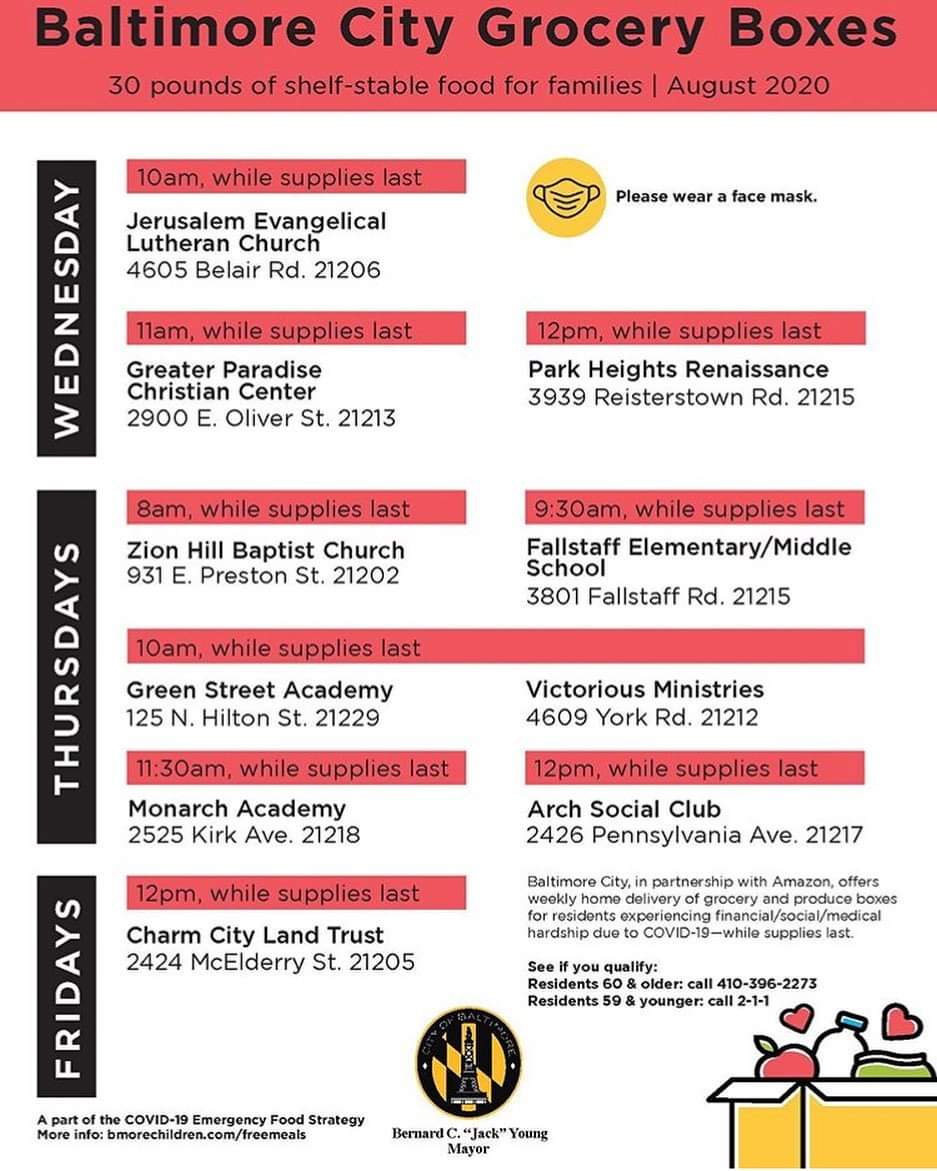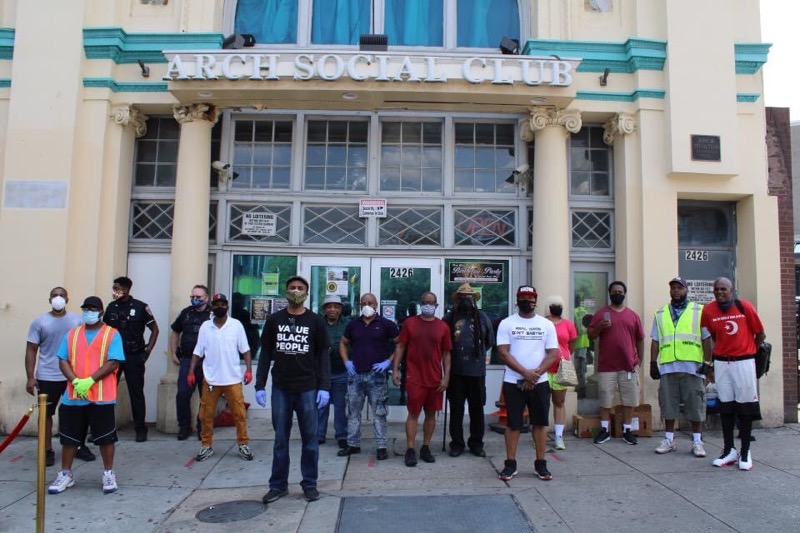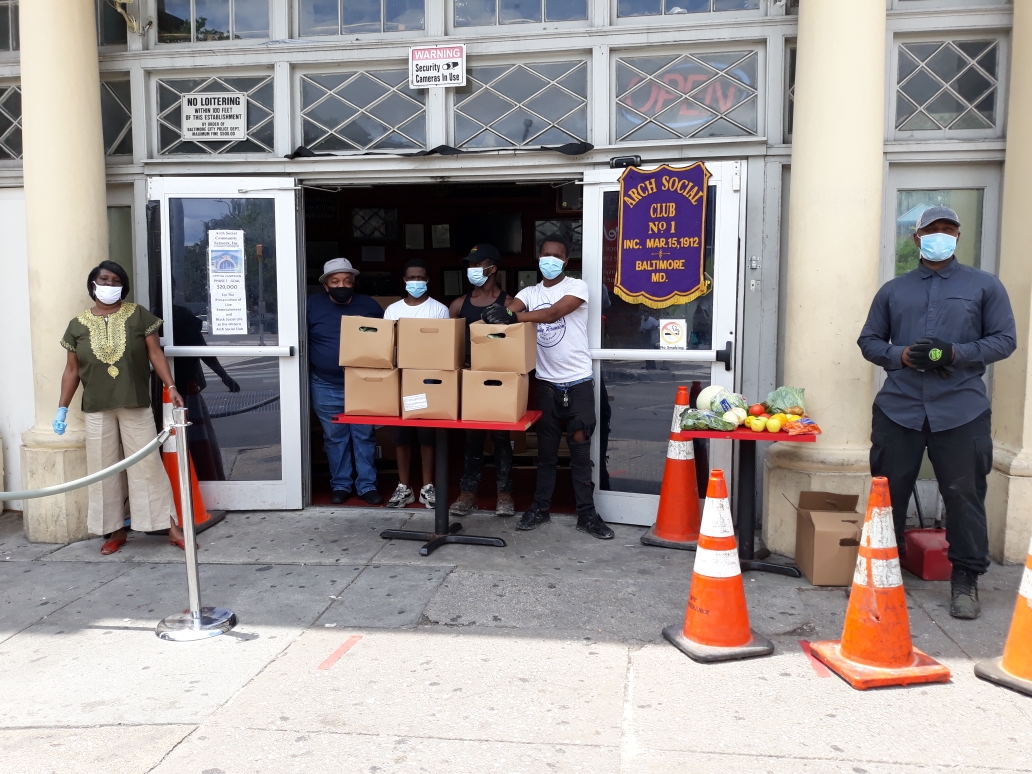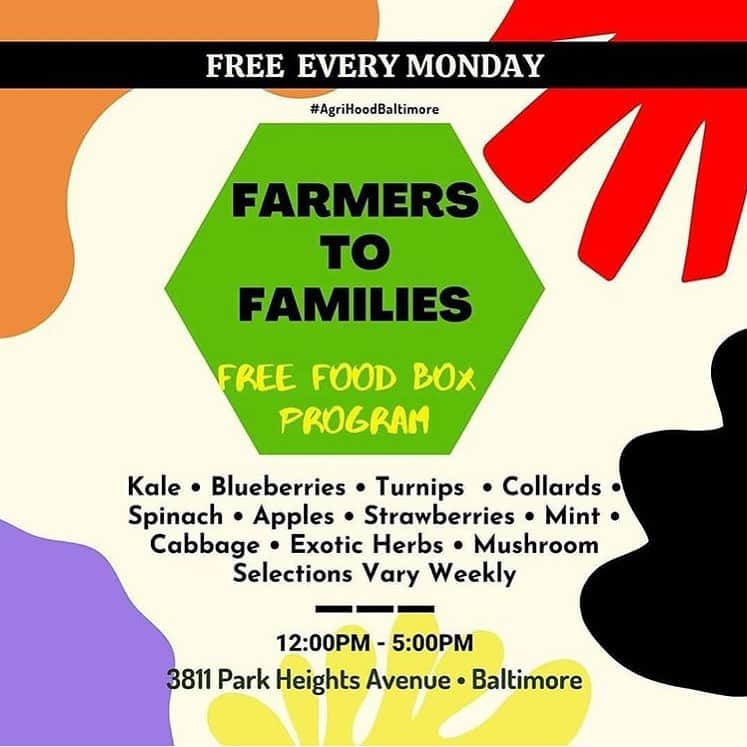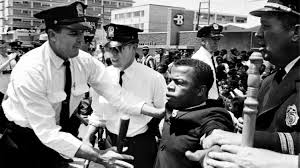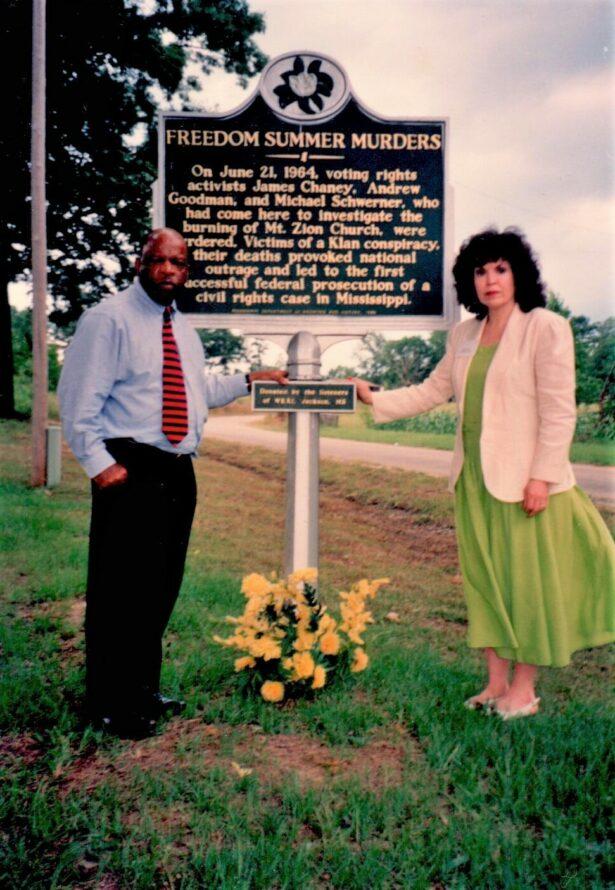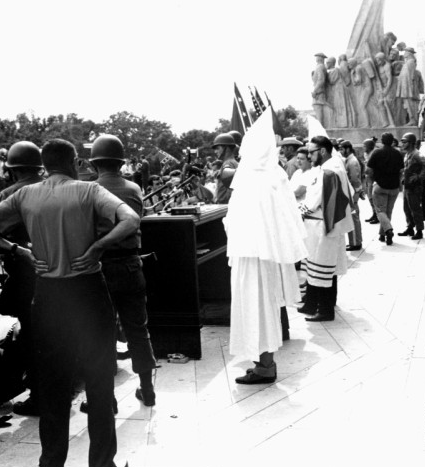EDITOR’S NOTE: Most discussions about the expression of the voice of Afrikan people on the World Stage centers around two organizations: the United Nations (UN) and the African Union (AU). The problem with this level of discussion is that, as global and regional bodies controlled by heads of state, there is an incentive to control the pace of progress toward grassroots empowerment, and bureaucracy is the primary means to effect that control.
The United Nations is currently observing the International Decade for People of African Descent (IDPAP, January 2015-December 2024), and has empaneled the Working Group of Experts on People of African Descent (WGEPAD) to conduct reviews and make recommendations under the slogan of Recognition, Justice and Development. However, the fact that Afrikans in the Diaspora do not officially represent a state of their own limits us to a position of dependence on the UN to determine the level of actual progress we will be able to make. We are not at the level of an official UN Member State, so much of our Pan-Afrikan Agenda runs the serious risk of going unheeded.
The African Union is a regional organization centered on the 55 countries of Afrika, and in 2003 the AU promulgated Article 3(q) of its Constitutive Act to invite the Diaspora to participate in “the development of the African Continent and the building of the African Union.” A process was proposed by which that participation would occur, centered on the AU’s Economic, Social and Cultural Council (ECOSOCC) and Pan African Parliament (PAP). But the AU remains a Pan-Afrikan bureaucracy run by the heads of state of the African nations comprising it, and not all of those heads of state have ratified Article 3(q) to this day. Some Continental Africans who have emigrated to the West (the “Modern Diaspora”) even express misgivings about including the descendants of the Maafa or Slave Trade (the “Historical Diaspora”) into the AU. Thus, while the process has been codified for over 17 years, the actual implementation of that process has been delayed, much to the frustration of many Afrikan Diaspora activists, including members of SRDC.
This does not mean that SRDC and its affiliated organizations have given up on the AU and the UN, though there are some who believe we should do exactly that. SRDC and its European “sister” organization, African Unity African Diaspora Sixth Region (AUADS) maintain contact with the UN and its Working Group of Experts on People of African Descent. And SRDC and AUADS have continued to pressure the AU to make good on its promise to finalize the Diaspora’s inclusion in ECOSOCC and the Pan African Parliament.
But this does mean that, in the event that the AU and the UN somehow fail to ever truly deliver on their promises to the Pan-Afrikan Diaspora, we must be open to other possibilities. And there is no reason why we should not pursue these options at the same time that we await a Global Afrikan Epiphany to befall the officials of the AU and UN so they will grant us a full hearing as full members. One strong such possibility is the relatively newly formed Pan African Federalist Movement (PAFM), a grassroots global movement that has one goal: the establishment of the political union of the Black nations of the world (not just in Afrika but also in the Caribbean, Central America and large Black populations in countries around the world) as the United African States. The article below briefly discusses the PAFM and provides links for those who want to learn more. (Full Disclosure: the author is the Maryland State Facilitator of SRDC as well as the current Deputy Coordinator for North America of PAFM.)
by Bro. Cliff
Maryland State Facilitator, Sixth Region Diaspora Caucus
Deputy Coordinator for North America, Pan African Federalist Movement
Throughout our history of resistance to conquest, enslavement, terrorism, discrimination, disenfranchisement, economic exploitation and overall sociopolitical deprivation, Afrikan people have consistently, even if only in concentrated pockets of the Vanguard, called upon our people to unite, organize and resist.
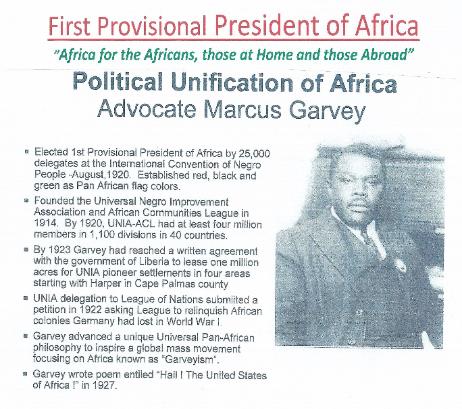 We easily recite the immortal words of the Honorable Marcus Mosiah Garvey, “Up you mighty race, you can accomplish what you will.” Less-well remembered, however, are perhaps his most important words, given as prescription and warning: “The thing to do is to get organized. Stay separated and you will be exploited, you will be robbed, you will be killed. Get organized and you compel the world to respect you.”
We easily recite the immortal words of the Honorable Marcus Mosiah Garvey, “Up you mighty race, you can accomplish what you will.” Less-well remembered, however, are perhaps his most important words, given as prescription and warning: “The thing to do is to get organized. Stay separated and you will be exploited, you will be robbed, you will be killed. Get organized and you compel the world to respect you.”
There have been many activists, organizers and “just plain folks” who have insisted that Afrikan people must organize and unify if we are to overcome the threats and obstacles placed before us. Few, however, have taken concrete action to bring our people to the point where that organization and unity can become a reality.
Of those who have made the valiant effort, most have failed in their mission. The reasons are many: lack of resources needed to bring their vision to fruition, lack of a coherent or well-thought-out vision to begin with, internal contradictions that led to organizational collapse, tragedies that have befallen the leaders from illness to assassination, active interference from political enemies from government or other organizations, devotion to personal ego and greed above the cause of serving the people, disasters that derailed the organization’s efforts just as victory was within their grasp, and what some would describe as “just plain bad luck”. The organization that is able to weather the storms of its own birth and growing pains retains a chance at implementing the goals of its founders, but only a chance. What happens after that is up to us, the people, to determine through our support or our negligence. To paraphrase the great Pan-Afrikan Ancestor Frantz Fanon, at that point we will either fulfill our destiny or betray it.
Having seen organizations come and go, some which in my opinion deserved a better fate than what befell them, I try not to casually proclaim the next great hope for Pan-Afrikan unification. There are, however, a few that merit serious support. I have written about the Sixth Region Diaspora Caucus (http://www.srdcinternational.org) on this Web site and in print articles. Another organization, one which I now hold in high enough regard to carve out more of my limited time to support, is the Pan African Federalist Movement (PAFM). Its stated mission is a simple one: to bring about the political unification of the Afrikan 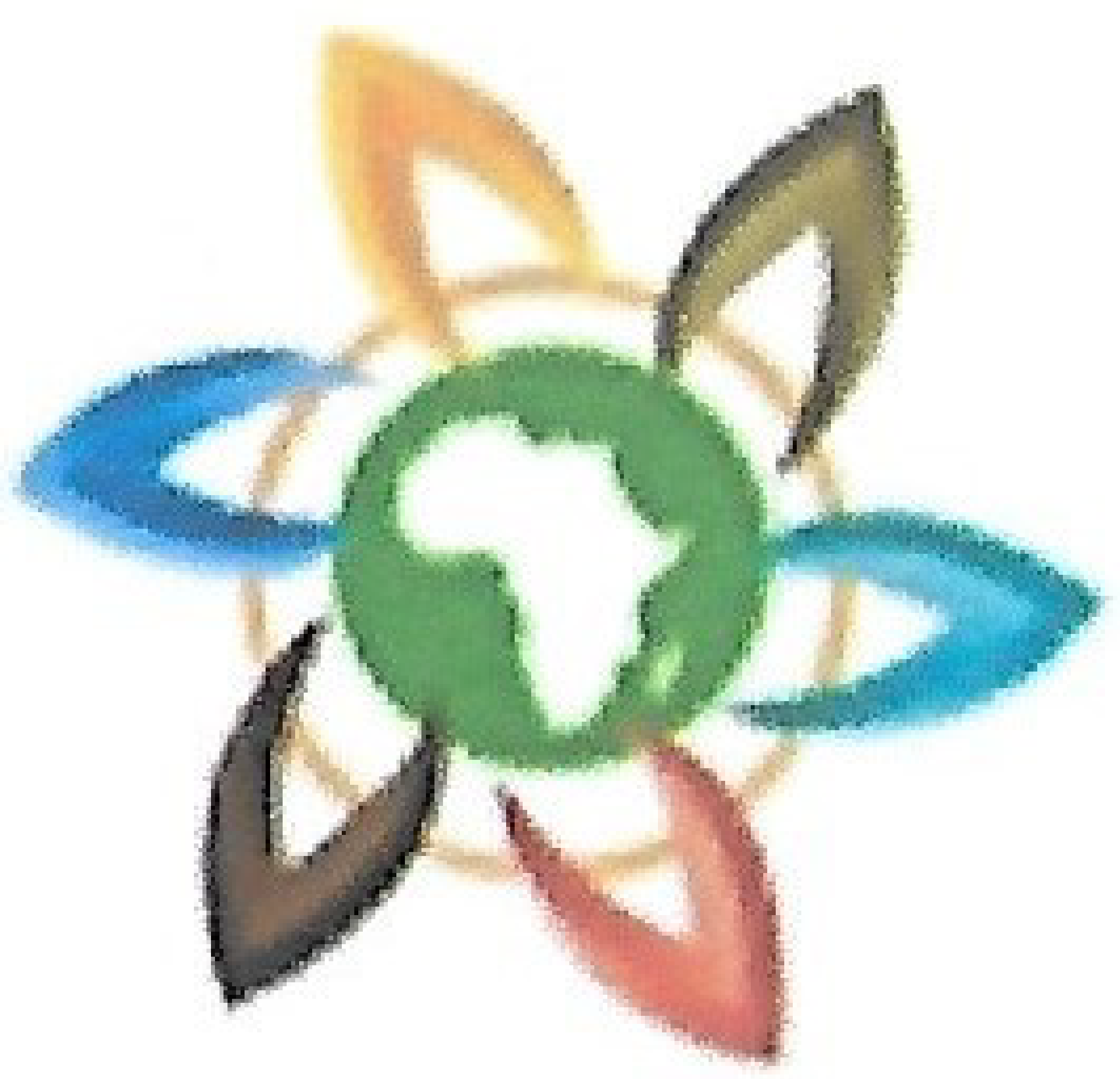 world as the United African States, bringing together the 55 nations in Afrika as well as the Black nations of the world, particularly those in the Caribbean, and massive Afrikan populations in the greater Diaspora who live in North America, Central America, South America, Europe, Asia and Oceania.
world as the United African States, bringing together the 55 nations in Afrika as well as the Black nations of the world, particularly those in the Caribbean, and massive Afrikan populations in the greater Diaspora who live in North America, Central America, South America, Europe, Asia and Oceania.
In an effort to introduce PAFM in an organized manner, I will start with its very recent beginnings. Having started with meetings in homes and apartments in Afrika and the Diaspora between those of us who are descended from kidnapped Ancestors and those of us who still hail from the Motherland Afrika, an effort began to seriously take shape in 2015, which led to a meeting of Afrikan people in Accra, Ghana on December 8-13, 2018 to commemorate the 60th Anniversary of the All African People’s Congress and to call for the official convening of a Pan African Federalist Congress. This gathering was thus dubbed the Pre-Pan-African Federalist Movement Congress.
Several key formative statements can be found on the Web site http://www.africanpublius.com, where important declarations from noted scholars and activists can be found and read. Here we present a few of them:
Meeting the Challenge of a Renascent Africa on the World Stage
This plea by Dr Akwasi Aidoo, Founder of Trust Africa, is a must read.
Honorable Members of Government,
Honorable Ambassadors and Members of the Diplomatic Corps,
Distinguished Ladies and Gentlemen,
It gives me great pleasure to be with you today in celebration of one of the most important symbols of African unity. Africa Day is like no other day, because it symbolizes in a very practical way our collective spirit and search for unity and dignity. It speaks to the reality that Africa is more than the sum of its parts. It reminds us that the dreams of our founding fathers and mothers—those who died struggling for Africa—are still alive. Above all, it is a day and a celebration that gives us center-stage presence, when we want the rest of the world to stop, and take a look, and listen to what we have to say for ourselves and for humanity in general.
What I have to say today may not sound very palatable or diplomatic to some ears, but we are in a bad shape, and when you are in a bad shape you must speak the truth and do so with passion. I will start from a personal angle. I will soon be 57 years old, so I saw the birth of the Organization of African Unity in 1963. I did not read about it, I saw it being born. I shared in the euphoria it evoked; and I was inspired by the dream and promise it offered of a united and proud Africa. Sadly today, I cannot look my two children in the face and say to them that they will inherit a united Africa in their lifetime. In 1985 when I went to teach at the University of Dar es Salaam, I didn’t need a visa to live there; today I need a visa just to visit that African country. In many ways, we seem to be more politically and economically fragmented and disunited today than we were decades ago. For the average citizen, that’s the shape we are in, and it’s not a pretty shape.
I have chosen to speak of the Challenge of a Renascent Africa on the World Stage for the simple reason that that is the only way we can address all the other problems that we face. As Frantz Fanon once said, “Every generation must, out of relative obscurity, discover its mission and either fulfill it or betray it.”
The core mission of this generation, our generation, is to forge a renascent Africa on the world stage. It is a mission that speaks to a trans-historical challenge which we must confront now or never. Let me explain with a brief flashback.
Centuries ago, Africa’s encounter with the external world found us practically unprepared to assert our collective interest. The ultimate result was conquest, slavery and colonization. In the middle of the last century, when the Cold War began, we were once again unprepared to assert our collective interest and therefore allowed ourselves to be used as pawn in that war. Still, today, there are residues of that painful history as well as new forces that seek to reinvent that history. But the uncomfortable truth is that the forces that seek to keep Africa down are not always from the outside. There is an African saying that:
“The external enemy strikes hardest only when he or she has collaborators in-house.”
So, what does a renascent Africa on the global stage mean? And, what must be our strategy?
Fundamentally, it means we must put African unity and African integration on a fast track. Literally, we must stop everything we are doing and integrate our continent. We have no choice. The forces that disintegrate Africa have been at work for a very long time, and they are getting stronger by the day. So, we have no choice. And, we must do a number of things now:
1. First, we must open up our borders to each other. Let us get our citizens the basic freedom of free movement. Visa-free Africa. Kenyans shouldn’t have to go to the French Embassy in Nairobi for a visa to come visit Senegal, etc. I call on the good government of Senegal and President Wade who has demonstrated his pan- Africanist and visionary credentials to please take action on this.
2. Second, we must create and preserve space for ordinary citizens across the continent to become actively involved in making decisions that affect the continent as a whole. The evidence is clear that State-led integration has severe limits.
3. Third, we must harmonize our trade and customs policies. Let us be more proactive and coordinated in dealing with the major world powers. It does us no good and brings us no respect when tens of our presidents troop to China looking for aid and cooperation, almost like a sack of potatoes, with no coordinated and common agenda.
4. Fourth, we must prioritize support for our creative forces. We know that artistic and cultural productions are one of the easiest ways our people connect to each other across borders. Youssou Ndour’s music and Alpha Blonde’s music and Mariam Makeba’s music carry no visas to cross our borders. We all embrace them. So are Ousmane Sembene’s literature and films, Mariama Ba’s beautiful narratives, Breytenback’s soaring artistic productions, etc. But we are terrible at strengthening our creative forces. Cheikh Anta Diop, Bessie Head, Christopher Okigbo, Mariama Ba, Sony Labou Tansi lived unsupported, died unsung and remain virtually unknown. We must finance African literature and publishing. We must support our musicians and artists. We must respect our traditional knowledge systems. Without these, Africa has no soul and can’t be taken seriously on the world stage.
5. Fifth, we must take our Diaspora more seriously than we currently do. The true value of our Diaspora is not in the remittances they bring home on a regular basis, important as those remittances have become to sustain livelihoods and even whole economies. The transformative value of the African Diaspora lies in the social and cultural healing that a serious engagement with it will produce. As a Ghanaian saying goes; “When your family is divided, your back is broken.” We must reassemble the African family, for it’s the only basis for forging global alliances for Africa. We must call on all those who have left to come back or reconnect powerfully with the continent. We must embrace all people of African descent.
Perhaps this plea is best captured poetically:
Please Come Back Home (For NK)
From the point of no return
Through the clutched hell-gates that birthed
Our memories of spelled glory
Please Come Back Home
From the sixth time
Of circular dance at the tree of forbidden life
Where we said you must go and forget
Please Come Back Home
From the claws of killing time
In gulfing passages of wailing waves
Armed with the stubborn sense of struggle
Please Come Back Home
From your silent songs of sorrow
In soul-massaging blues
Naked in all those razz-matazzing jazz
Please Come Back Home
From where the sun’s sudden defeat
In cotton-rains of winter seat
Your undying dreams of life and joy
Please Come Back Home
From where the warm spirit dies
In bloody cold climes of faceless lies
Where dreams of Zion are deferred by dismembered limbs
Please Come Back Home
From the placid pains of Babylon
Where love is short and hatred long
So short and long they forget the fragile name of peace
Please Come Back Home
From where your love dies
In lightless corridors of Triple-K drenched blood
Where no one, but no one, hears your call in grief
Please Come Back Home
From all these and more,
… Our Love …
Please Come Back Home
©2006 akwasi aidoo
Africa’s potential is inestimable and inexhaustible. Our continent has survived the worst any people could suffer but our people have never given up. If, as leaders of Africa, we do what is right, our people’s march to a future worthy of all our children would be unstoppable. And, the right thing to do is remove all the obstacles that stand in the way of our people’s march to that future.
Thank you.
Africa Day Speech
May 25, 2007
DakarSenegal
Akwasi Aidoo.
Dr. Aidoo, Former Executive Director of TrustAfrica, has extensive experience in philanthropy in Africa. His positions have included IDRC Program Officer for Health and Development in West and Central Africa and head of the Ford Foundation’s offices in Senegal and Nigeria from 1993 to 2001. He serves as a director on boards of several nonprofit organizations, including Oxfam America, the Crime Prevention Centre of South Africa, the Soros Foundation’s AfriMAP initiative, and the Global Network Committee of the Ash Institute at HarvardUniversity. He also chairs the executive committee of the Africa Grantmakers’ Affinity Group. Dr. Aidoo has taught at universities in Ghana, Tanzania, and the United States. He was educated in Ghana and the United States and received a Ph.D. in Sociology from the University of Connecticut in 1984. He writes poetry and short stories in his spare time.
“I Speak of Freedom”: Dr. Kwame Nkrumah on the Need for Afrikan Unification
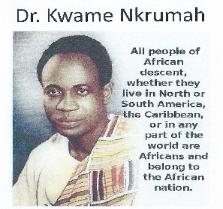 An excerpt from Dr. Kwame Nkrumah’s famous 1961 speech “I Speak of Freedom”. He foretold in 1961 what will happen today if African countries do not unite politically. What will happen to the future African generations if we do not unite Africa today?
An excerpt from Dr. Kwame Nkrumah’s famous 1961 speech “I Speak of Freedom”. He foretold in 1961 what will happen today if African countries do not unite politically. What will happen to the future African generations if we do not unite Africa today?
For centuries, Europeans dominated the African continent. The white man arrogated to himself the right to rule and to be obeyed by the non-white; his mission, he claimed, was to “civilize” Africa. Under this cloak, the Europeans robbed the continent of vast riches and inflicted unimaginable suffering on the African people.
All this makes a sad story, but now we must be prepared to bury the past with its unpleasant memories and look to the future. All we ask of the former colonial powers is their goodwill and cooperation to remedy past mistakes and injustices and to grant independence to the colonies in Africa….
It is clear that we must find an African solution to our problems, and that this can only be found in African unity. Divided we are weak; united, Africa could become one of the greatest forces for good in the world.
Although most Africans are poor, our continent is potentially extremely rich. Our mineral resources, which are being exploited with foreign capital only to enrich foreign investors, range from gold and diamonds to uranium and petroleum. Our forests contain some of the finest woods to be grown any where. Our cash crops include cocoa, coffee, rubber, tobacco and cotton. As for power, which is an important factor in any economic development, Africa contains over 40% of the potential water power of the world, as compared with about 10% in Europe and 13% in North America. Yet so far, less than 1% has been developed. This is one of the reasons why we have in Africa the paradox of poverty in the midst of plenty, and scarcity in the midst of abundance.
Never before have a people had within their grasp so great an opportunity for developing a continent endowed with so much wealth. Individually, the independent states of Africa, some of them potentially rich, others poor, can do little for their people. Together, by mutual help, they can achieve much. But the economic development of the continent must be planned and pursued as a whole. A loose confederation designed only for economic co-operation would not provide the necessary unity of purpose. Only a strong political union can bring about full and effective development of our natural resources for the benefit of our people.
The political situation in Africa today is heartening and at the same time disturbing. It is heartening to see so many new flags hoisted in place of the old; it is disturbing to see so many countries of varying sizes and at different levels of development, weak and, in some cases, almost helpless. If this terrible state of fragmentation is allowed to continue it may well be disastrous for us all.
There are at present some 28 states in Africa, excluding the Union of South Africa, and those countries not yet free. No less than nine of these states have a population of less than three million. Can we seriously believe that the colonial powers meant these countries to be independent, viable states? The example of South America, which has as much wealth, if not more than North America, and yet remains weak and dependent on outside interests, is one which every African would do well to study.
Critics of African unity often refer to the wide differences in culture, language and ideas in various parts of Africa. This is true, but the essential fact remains that we are all Africans, and have a common interest in the independence of Africa. The difficulties presented by questions of language, culture and different political systems are not insuperable. If the need for political union is agreed by us all, then the will to create it is born; and where there’s a will there’s a way.
The present leaders of Africa have already shown a remarkable willingness to consult and seek advice among themselves. Africans have, indeed, begun to think continentally. They realize that they have much in common, both in their past history, in their present problems and in their future hopes. To suggest that the time is not yet ripe for considering a political union of Africa is to evade the facts and ignore realities in Africa today.
The greatest contribution that Africa can make to the peace of the world is to avoid all the dangers inherent in disunity, by creating a political union which will also by its success, stand as an example to a divided world. A Union of African states will project more effectively the African personality. It will command respect from a world that has regard only for size and influence. The scant attention paid to African opposition to the French atomic tests in the Sahara, and the ignominious spectacle of the U.N. in the Congo quibbling about constitutional niceties while the Republic was tottering into anarchy, are evidence of the callous disregard of African Independence by the Great Powers.
We have to prove that greatness is not to be measured in stockpiles of atom bombs. I believe strongly and sincerely that with the deep-rooted wisdom and dignity, the innate respect for human lives, the intense humanity that is our heritage, the African race, united under one federal government, will emerge not as just another world bloc to flaunt its wealth and strength, but as a Great Power whose greatness is indestructible because it is built not on fear, envy and suspicion, nor won at the expense of others, but founded on hope, trust, friendship and directed to the good of all mankind.
The emergence of such a mighty stabilizing force in this strife-worn world should be regarded not as the shadowy dream of a visionary, but as a practical proposition, which the peoples of Africa can, and should, translate into reality. There is a tide in the affairs of every people when the moment strikes for political action. Such was the moment in the history of the United States of America when the Founding Fathers saw beyond the petty wranglings of the separate states and created a Union. This is our chance. We must act now. Tomorrow may be too late and the opportunity will have passed, and with it the hope of free Africa’s survival.
— From Kwame Nkrumah, I Speak of Freedom: A Statement of African Ideology (London: William Heinemann Ltd., 1961), pp. xi-xiv.
A Call for the first African Federalist Congress
from africanpublius.com
Africa can unite and must unite if we African Federalists Come together
The outcome of the Accra 2007 African Union Summit has made it clearer, even to the least perceptive monitors of the effort that is being deployed to unite Africa, that Sirte 1999 (a meeting hosted by Libyan President Muammar Gadaffi that helped pave the way for the current African Union and its outreach to the Afrikan Diaspora–Editor) did not create the momentum that many African Federalists were hoping for. Like the Addis Ababa 1963 compromise that gave birth to the Organization of African Unity (OAU), what appeared to be a middle of the ground agreement on July 12, 2000 in Lome, Togo, was indeed a defeat of the African federalists. It is today becoming more and more evident that we are headed towards another failure of the African Political leadership to put an end to the balkanization of our continent. The dream of a United States of Africa, which an overwhelming majority of the people of African descent has for decades longed to see materialize, is starting to look more like a utopia than a feasible plan to get Africa out of its actual quagmire.
We believe that the failures of the different plans that have been put forth to unite Africa trace their roots to the fact that the approaches that have been so far embraced by African Federalists were either wrong or incomplete. For that very reason they were unable to create the kind of environment that is vital to the birth of the Union of African States. All these approaches were deeply rooted in the sincere desire to see Africa become one politico-economic entity and for that reason they were worthy and significant but lacked the capacity to carry the implementation of the African Federalist Agenda to a level that is necessary to achieve the Unification of Africa. The need for the African federalists to find a new approach for the birth of a healthy political union of the African states is today self-evident.
What are the obstacles that have for several decades foiled the plans to unite Africa politically? How can these impediments be overcome? Why does the unification of Africa, from which more than a billion people will undoubtedly benefit, seem to be so difficult to achieve? These are some of the questions that many Africans at home and abroad have been rightfully asking themselves as they lose faith in the capacity of the Organization of African Unity (OAU) and the African Union (AU) to transform our continent into one politico-economic entity. The search for realistic answers to these questions is the main reason for creating this meeting place for African Federalists.
Why do we believe that the right time is now?
In 1961 when Dr. Nkrumah said prophetically to his peers that the only way for us to make it was by forming “a strong political union”, many Africans had a hard time seeing and/or accepting the truth. Today, more than fifty years after the wave of independence has passed through the continent, the failed economies of those countries that once looked promising, the civil wars and pandemics that have claimed the lives of millions of Africans, the national debts that have become an unbearable burden for the majority of the African countries despite the insignificance of their amount and the threat posed today by globalization to many of the African subcultures stand as undeniable proofs to the righteousness of Nkrumah’s warning.
It is now “self evident” to the overwhelming majority of people of African descent and to the friends of Africa that the only way out of the despair is to follow Nkrumah’s advice and embrace the Continental Federalist Option. Now more than ever his call stands a much better chance to be heeded if the right approach for provoking the birth of the Union of African States is found and implemented. Now more than ever a generation of Africans has the real opportunity to unite Africa and leave to its descendants a legacy that will be a source of pride and bright prospect instead of being a laughing stock for the rest of the world.
Do you believe that Nkrumah was right when he stated that; “Africa Must Unite”?
Do you believe like Cheikh Anta Diop that only a federal state can develop Africa?
Do you believe that the OAU and its child the AU have very little chance to unite Africa?
Do you believe that the overwhelming majority of the African people want Africa to unite?
Is Africa’s political and economic unity a cause worth giving your time and resources?
If your answer to any of those five questions is yes, consider yourself to be one of of the people that we are trying to reach. Please start to mobilize around you for the convening of the First African Federalist Congress.
Pre-First Pan African Federalist Congress Declaration
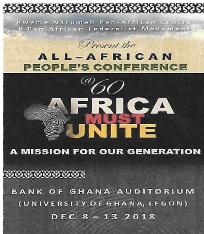 The following is the official Final Declaration of the Pre-First Pan African Federalist Congress that was held in Accra, Ghana from December 8-13, 2018. This Declaration officially set in motion the establishment of the Pan African Federalist Movement (PAFM).
The following is the official Final Declaration of the Pre-First Pan African Federalist Congress that was held in Accra, Ghana from December 8-13, 2018. This Declaration officially set in motion the establishment of the Pan African Federalist Movement (PAFM).
FINAL DECLARATION
Pre First Pan African Federalist Congress
COMMEMORATION OF SIXTIETH ANNIVERSARY OF THE ALL AFRICAN PEOPLE’S CONFERENCE (1958 – 2018) AND THE PAN-AFRICAN FEDERALIST MOVEMENT PRE-CONGRESS
ACCRA, GHANA From 8 – 13 December, 2018
On the occasion of the joint commemoration of the 60th Anniversary of the historic All African People’s Conference held in Accra from 8th to 13th December 1958 at the call of Dr. Osagyefo Kwame Nkrumah, the Kwame Nkrumah Pan African Centre (KNAC) and the Pan-African Federalist Movement (PAFM) convened a gathering in Accra, Ghana, on the same dates in 2018, at the Bank of Ghana’s auditorium at the University of Ghana, in Legon.
The choice of Ghana to host the commemoration of the 60th Anniversary of the All African People’s Conference and hold the Pre-First Pan African Federalist Congress is justified by the important role this country had played in the history of the Pan-Africanist movement.
This event was enhanced by the presence of the President of the Republic of Ghana, His Excellency Mr. Nana Addo Dankwa Akufo-Addo who said in his speech: “My generation can fulfill the dreams of our founding fathers and founding mothers: the total unification of the continent and the African peoples, including those of the Diaspora and Afro Descendants.”
This statement of the President of the Republic of Ghana is in complete harmony with the spirit and vision of the Pan-African Federalist Movement.
During the pre-congress, the delegates who came from various regions and countries on the continent of Africa and its Diaspora dealt with the following issues:
⦁ The call for the political unification of Africa,
⦁ The manifesto of the Pan-African Federalist Movement,
⦁ The terms of reference for the upcoming First Pan African Federalist Congress,
⦁ The charter of First Pan African Federalist Congress,
⦁ The Concept of the First Pan African Federalist Congress
⦁ The Strategy to Build the Pan African Federalist Movement and its campaign machine,
⦁ Fundraising and Management strategies for financing the Movement and its campaign,
⦁ The communication and mobilization strategy for the Movement and its Campaign,
⦁ Kwame Nkrumah’s book “Africa must unite” was presented
When this work was completed, the Movement decided on the official proclamation of its existence, three years after the call of the Provisional International Initiative Committee (CIIP) launched in Dakar in 2015.
The new organizational charter of the Movement was adopted. Key members of the International Preparatory Committee of the First Pan African Federalist Congress were elected and the decision to hold the Congress in two to three years was made. Mali was chosen to host the headquarters of the PAFM.
The Pan-African Federalist Movement and the Kwame Nkrumah Pan African Centre jointly launch a solemn call to all African peoples, wherever they may be in the world, to join them in the active preparation of the Congress for the POLITICAL UNITY OF AFRICANS IN LESS THAN ONE GENERATION.
–Statement made at Accra on Thursday, December 13, 2018
PAFM North America, https://www.cbpm.org/pafmnoram.html
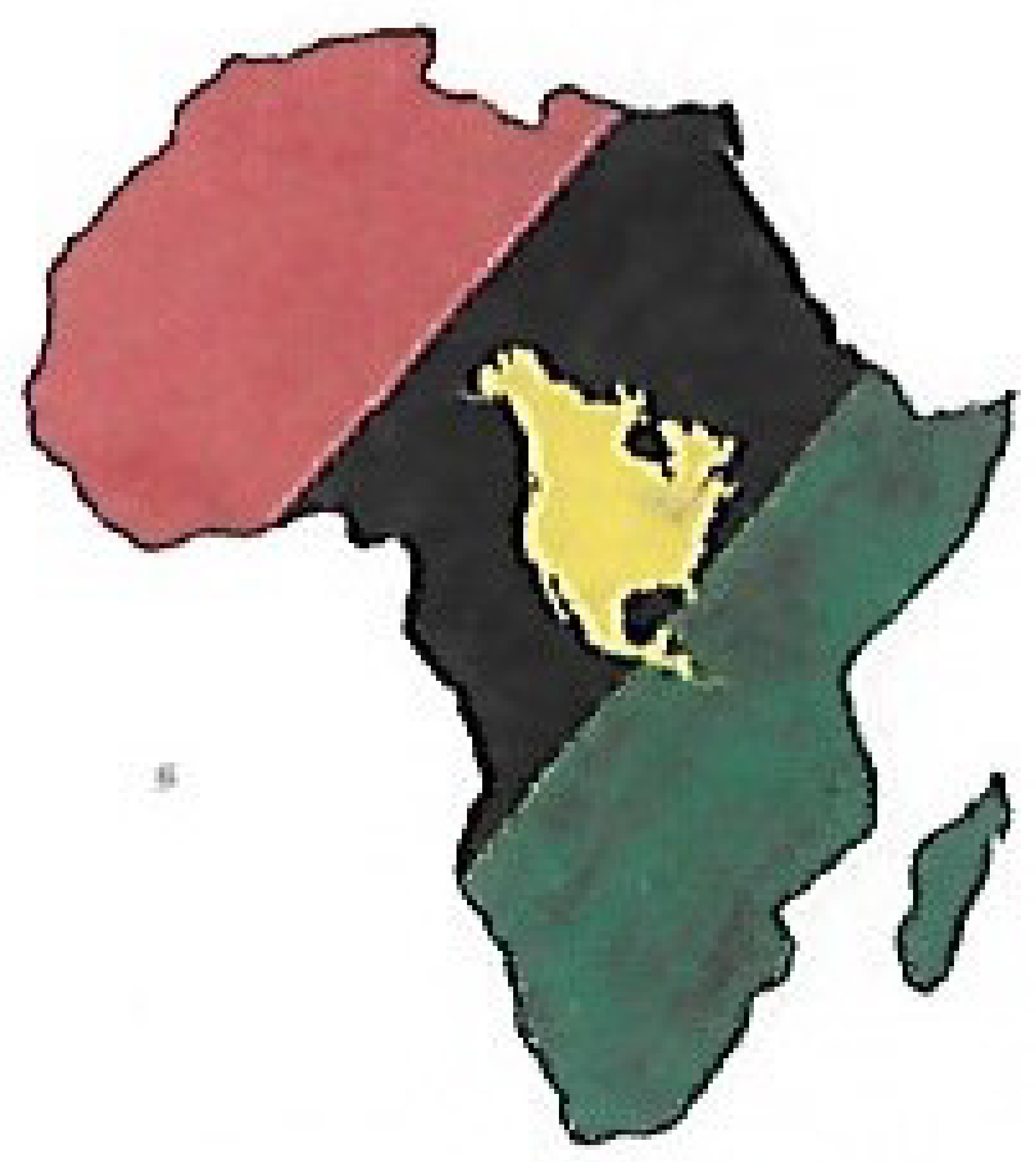 The Web site of the Collective Black People’s Movement (https://www.cbpm.org) became the first site to host comprehensive information on PAFM’s organizing effort in North America. There, several important introductory documents about PAFM in general and its organizing effort in North America can be read and studied.
The Web site of the Collective Black People’s Movement (https://www.cbpm.org) became the first site to host comprehensive information on PAFM’s organizing effort in North America. There, several important introductory documents about PAFM in general and its organizing effort in North America can be read and studied.
From the Web site https://www.cbpm.org/pafmnoram.html:
Habari Gani – The primary purpose of the North American PAFM is to galvanize and organize the Black/African communities in North America around our mission of bringing the United African States into political existence “in much less than a generation”.
STEP #1 – Sign our Petition (Below) in support of the idea of the political establishment of the United African States. Our goal is to collect at least 25,000 signatures in North America (United States and Canada) and to have the five (5) Regions on the African continent and the Caribbean, etc., do the same.
STEP #2 – To become an active participant in the Pan African Federalist Movement (PAFM) in North America and receive your membership card (pictured at the top of this article) here: https://www.cbpm.org/pafmnorammc.html
STEP #3 – Join or organize a Local Coordinating Committee (LCC) in your city or local community.
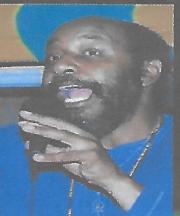 For additional information on how to proceed, please contact our Field Organizer, Baba Senghor Baye at (202) 256-2518 or Email: senghorb@hotmail.com.
For additional information on how to proceed, please contact our Field Organizer, Baba Senghor Baye at (202) 256-2518 or Email: senghorb@hotmail.com.
https://www.cbpm.org/pafmnorammc.html
There is much more information about PAFM than can be shared in one article. We will follow up with more information about PAFM in general, including the October 15-19 North American Pan African Federalist Convention (NAPAFC) below. In the meantime, here are some links to more information about PAFM.
Introductory Statement of PAFM North America.
https://www.cbpm.org/files/_10e_Expanded_PAFM_NorAm_Introductory_Stmnt_10-4-2019_.pdf
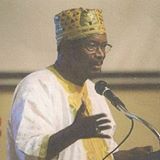 Power Point Presentation of North America Regional Coordinator Baba Mwalimu Amsata to the SRDC in Baltimore (November 2018) on the Pan African Federalist Movement in North America.
Power Point Presentation of North America Regional Coordinator Baba Mwalimu Amsata to the SRDC in Baltimore (November 2018) on the Pan African Federalist Movement in North America.
https://www.cbpm.org/files/_11_Pan_African_Federalist_Movement_in_North_America-PwrPP_for_6th_Region_Diaspora_Caucus_SRDC_UPDATED_9-30-2019.pptx
Sign the Petition for the United African States
“I support the idea of the political establishment of the United African States, consisting of a global federation of all countries in Africa, all African countries in the Caribbean and the African Diasporas in North and South America, Europe and Asia.”
The Petition in support of the establishment of the United African States (UAS) is on the main page of the CBPM/PAFM Website: https://www.cbpm.org/pafmnoram.html
Bio Sketch of Baba Mwalimu K-Q Amsata aka Brother Ed Brown, Current North American Regional Coordinator for PAFM.
https://www.cbpm.org/files/_A2Xi_Bio_Sketch_of_Baba_Mwlimu_K-Q_Amsata_aka_Brother_Ed_Brown_Updated_11-21-2019.pdf
PAFM GoFundMe Site
http://www.gofundme.com/f/north-america-pafm-convention-2020


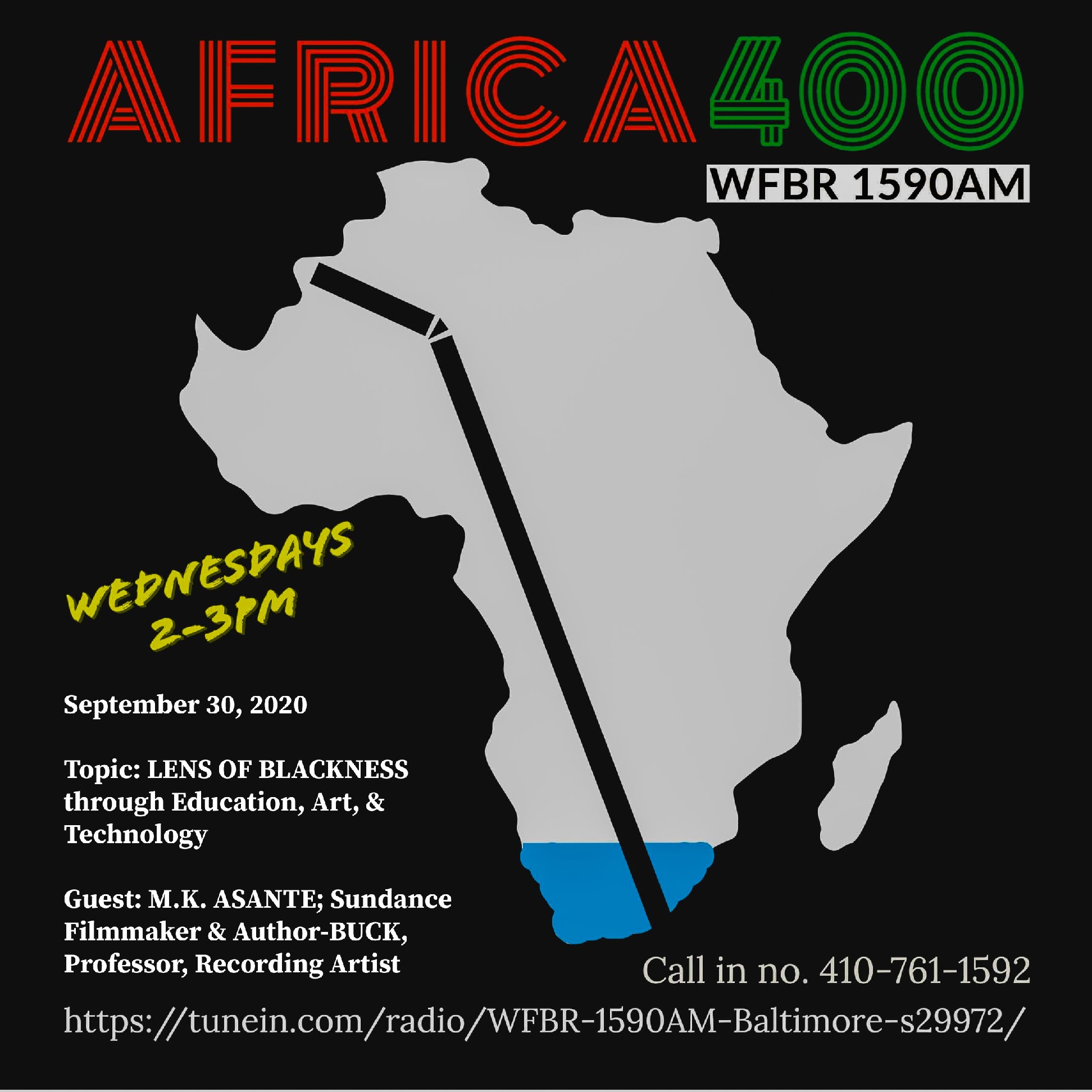
 Blackness through Education, Art and Technology”, and features as Mama Tomiko and Baba Ty’s special guest filmmaker, recording artist, author and professor M.K. Asante.
Blackness through Education, Art and Technology”, and features as Mama Tomiko and Baba Ty’s special guest filmmaker, recording artist, author and professor M.K. Asante.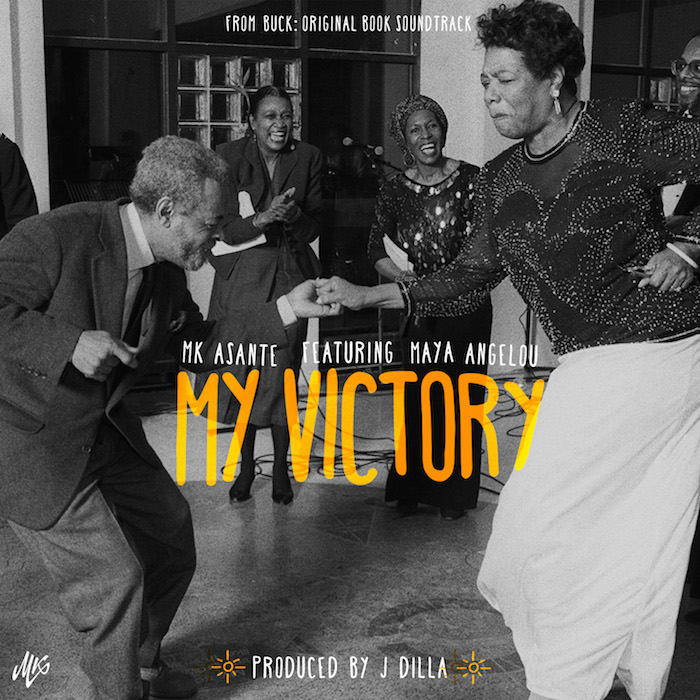 He is the author of Buck: A Memoir, praised by Maya Angelou as “A story of surviving and thriving with passion, compassion, wit, and style.” Buck is a multi-year Washington Post Bestseller and the recipient of numerous literary awards. Buck is currently being adapted into a major motion picture.
He is the author of Buck: A Memoir, praised by Maya Angelou as “A story of surviving and thriving with passion, compassion, wit, and style.” Buck is a multi-year Washington Post Bestseller and the recipient of numerous literary awards. Buck is currently being adapted into a major motion picture.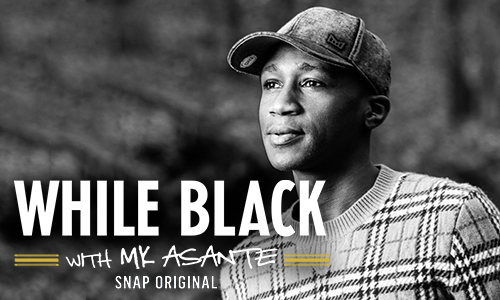 UCLA School of Theater, Film, and Television.
UCLA School of Theater, Film, and Television.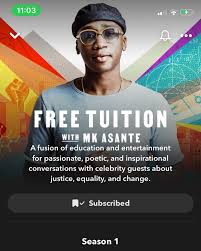 Snapchat.
Snapchat. He is the founder of Wonderful Sound Studios and a recording artist, most recently featured on the album Indie 500 by Grammy-winning producer 9th Wonder & Talib Kweli.
He is the founder of Wonderful Sound Studios and a recording artist, most recently featured on the album Indie 500 by Grammy-winning producer 9th Wonder & Talib Kweli.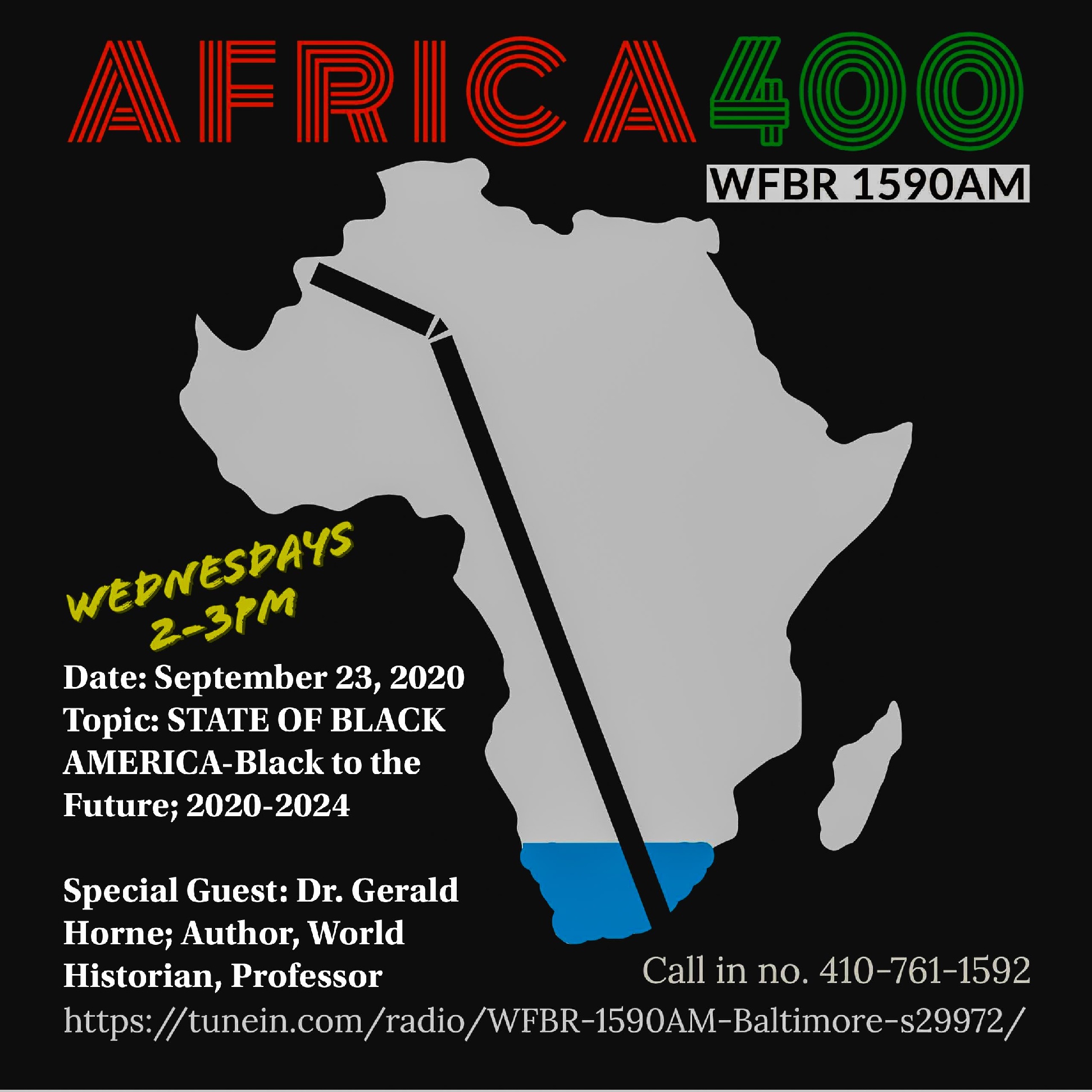 The Wednesday, September 23rd edition of Africa400 examines the “State of Black America-Black to the Future; 2020-2024” with hosts Mama Tomiko and Baba Ty.
The Wednesday, September 23rd edition of Africa400 examines the “State of Black America-Black to the Future; 2020-2024” with hosts Mama Tomiko and Baba Ty.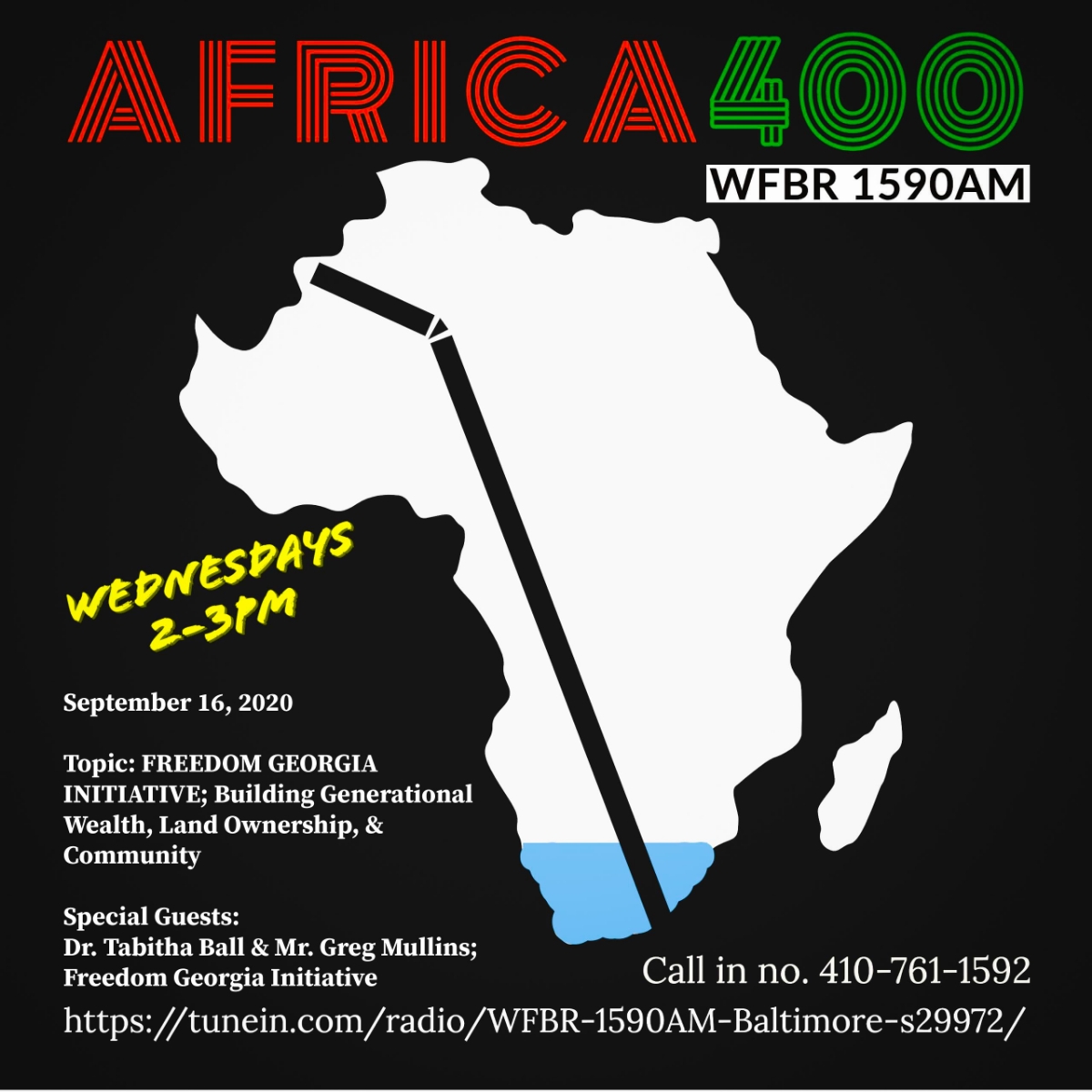 The Wednesday, September 16, 2020 edition of Africa400 examines the Freedom
The Wednesday, September 16, 2020 edition of Africa400 examines the Freedom 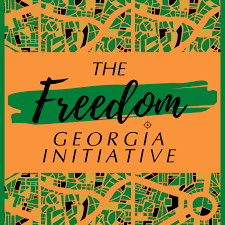 Georgia Initiative. Hosts Mama Tomiko and Baba Ty welcomed
Georgia Initiative. Hosts Mama Tomiko and Baba Ty welcomed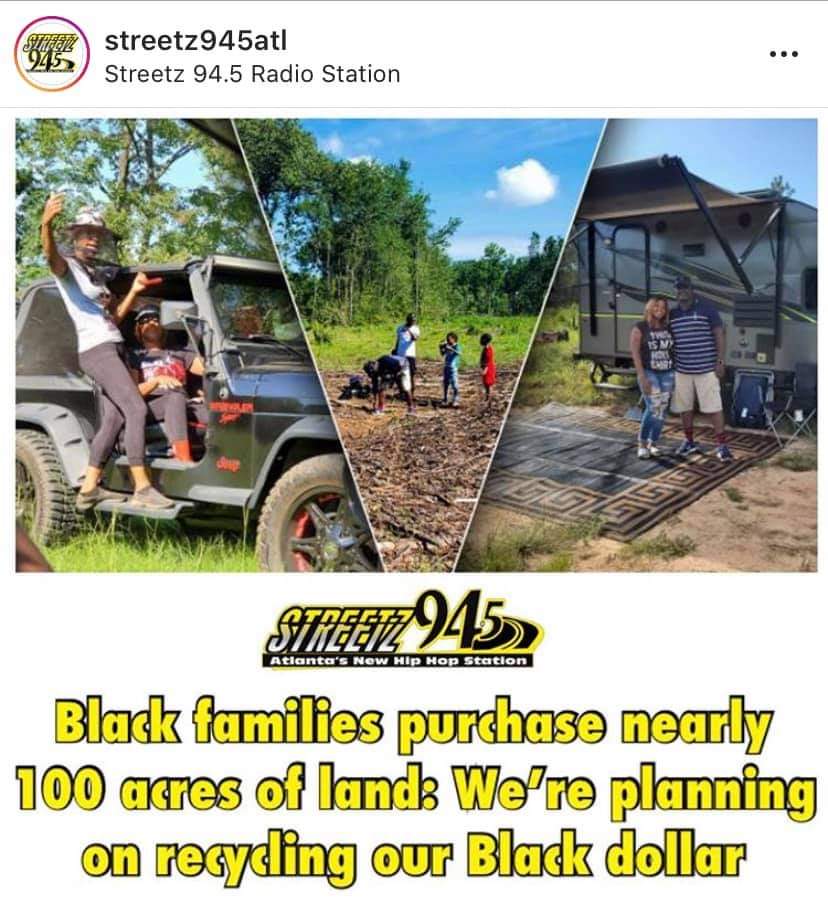
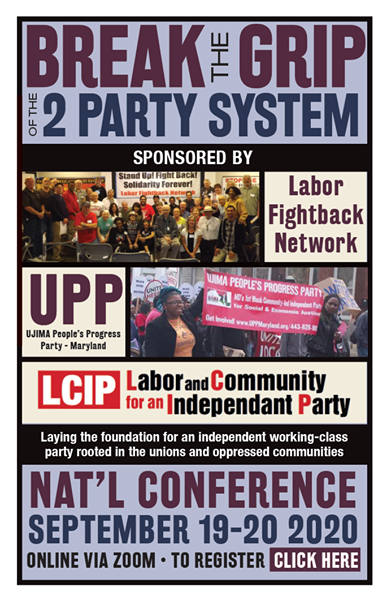
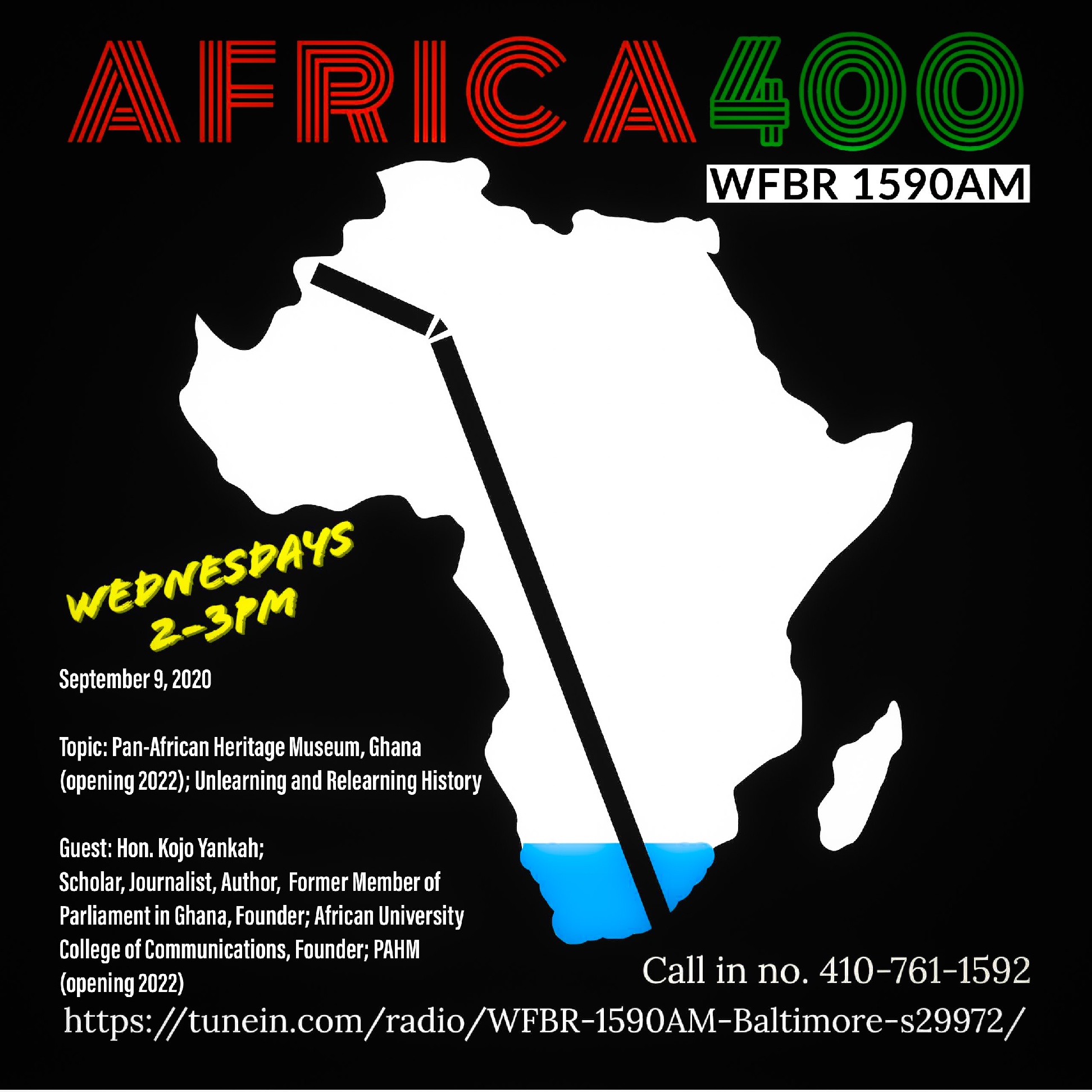 The Wednesday, September 9, 2020 edition of Africa400 discusses the upcoming
The Wednesday, September 9, 2020 edition of Africa400 discusses the upcoming 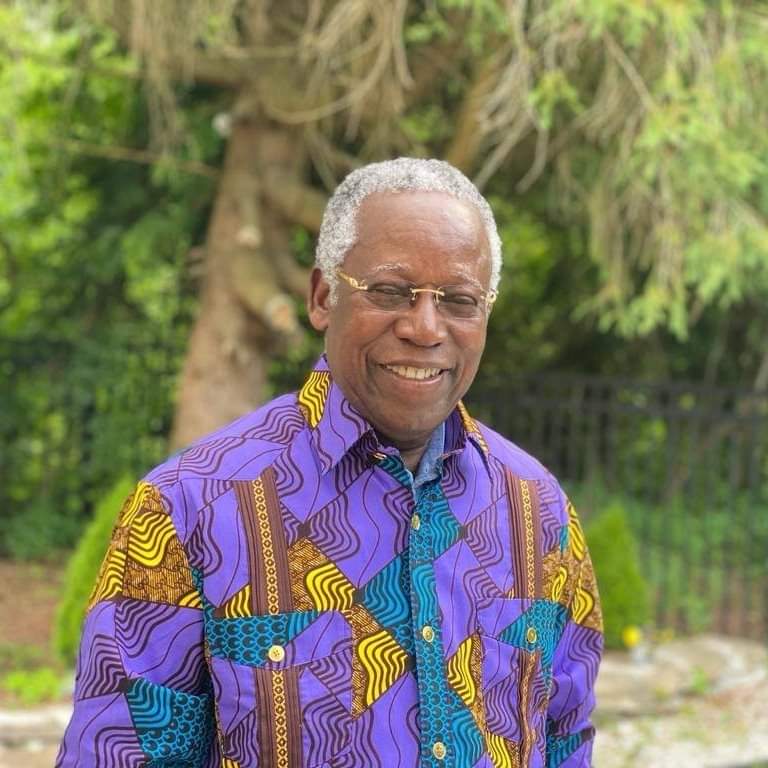 Pan African Heritage World Museum (PAHWM) in Ghana and the topic of Unlearning and Relearning History. Mama Tomiko and Baba Ty’s guest is the Honorable Kojo
Pan African Heritage World Museum (PAHWM) in Ghana and the topic of Unlearning and Relearning History. Mama Tomiko and Baba Ty’s guest is the Honorable Kojo 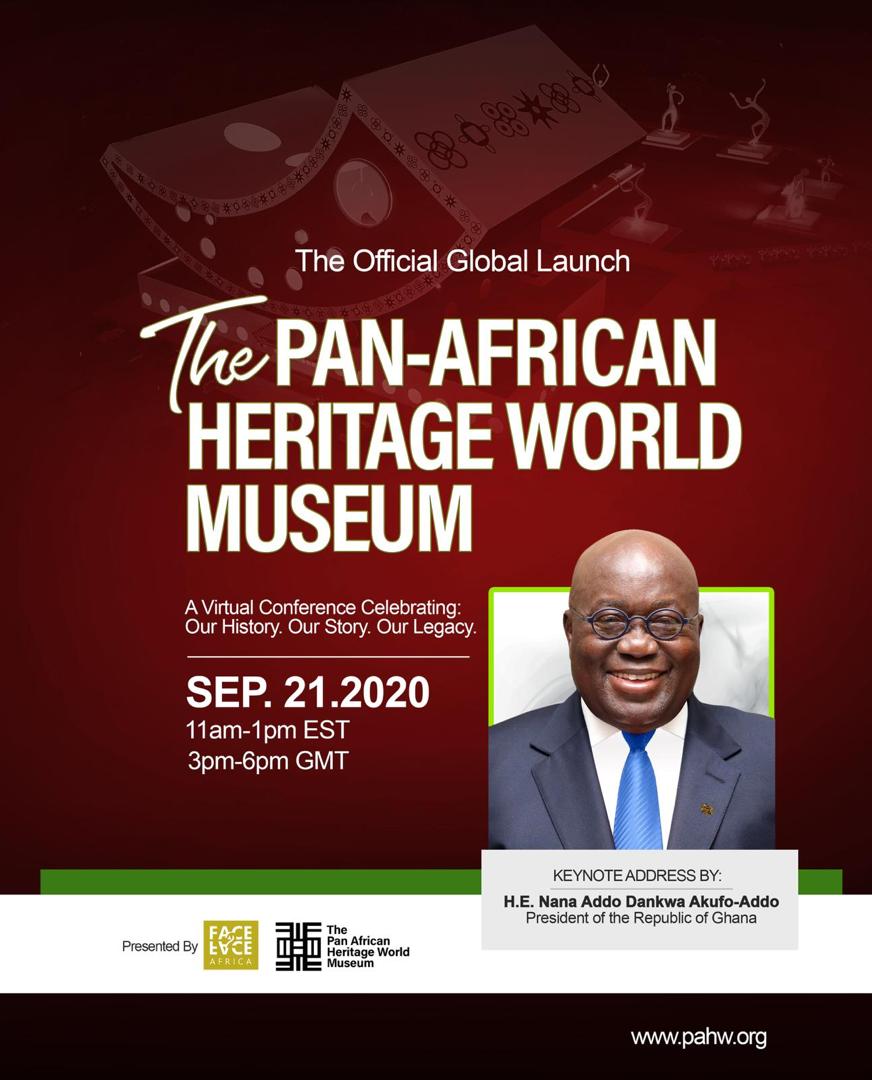 Yankah, scholar, journalist, author, former member of Parliament in Ghana, and the Founder of the African University College of Communications and the Pan African Heritage World Museum (PAHWM) which will open in 2022.
Yankah, scholar, journalist, author, former member of Parliament in Ghana, and the Founder of the African University College of Communications and the Pan African Heritage World Museum (PAHWM) which will open in 2022.

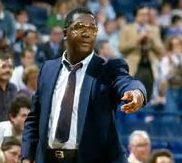 Coach John Thompson
Coach John Thompson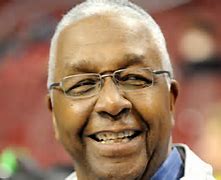 He also demonstrated his commitment to principles when he walked off the court at the start of a game to protest Propositions 42 and 48, which restricted college basketball scholarships in a way that disadvantaged Black players especially (the dependence on SAT scores to determine scholarship eligibility was particularly problematic because of the test’s cultural biases). He also put his money (or, rather, his well-being) on the line when he met with then-notorious local drug kingpin Rayful Edmond III in 1989 to tell him to stay away from his players. Edmond reportedly never associated with Georgetown players again after that meeting.
He also demonstrated his commitment to principles when he walked off the court at the start of a game to protest Propositions 42 and 48, which restricted college basketball scholarships in a way that disadvantaged Black players especially (the dependence on SAT scores to determine scholarship eligibility was particularly problematic because of the test’s cultural biases). He also put his money (or, rather, his well-being) on the line when he met with then-notorious local drug kingpin Rayful Edmond III in 1989 to tell him to stay away from his players. Edmond reportedly never associated with Georgetown players again after that meeting.  The “Black Panther”, Chadwick Boseman
The “Black Panther”, Chadwick Boseman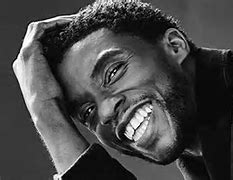 Needless to say, the expressions of shock and sympathy from the general public as well as the stars of Hollywood came in a flood. Family members of the historic figures he portrayed in film expressed their condolences and their appreciation of his career, most notably the family of Jackie Robinson. Most of us will be most impacted by his performance as T’Challa, the king of the fictional Afrikan nation of Wakanda, for the strong vision of Afrikan unity, Afrikan genius, and Afrikan leadership and morality he and the other actors portrayed. Many of us would become emotional when watching his seminal superhero movie. I imagine it will be much more the case now. A heartfelt Wakanda Salute to New Ancestor Chadwick Boseman, who left us at the shockingly young age of 43.
Needless to say, the expressions of shock and sympathy from the general public as well as the stars of Hollywood came in a flood. Family members of the historic figures he portrayed in film expressed their condolences and their appreciation of his career, most notably the family of Jackie Robinson. Most of us will be most impacted by his performance as T’Challa, the king of the fictional Afrikan nation of Wakanda, for the strong vision of Afrikan unity, Afrikan genius, and Afrikan leadership and morality he and the other actors portrayed. Many of us would become emotional when watching his seminal superhero movie. I imagine it will be much more the case now. A heartfelt Wakanda Salute to New Ancestor Chadwick Boseman, who left us at the shockingly young age of 43.